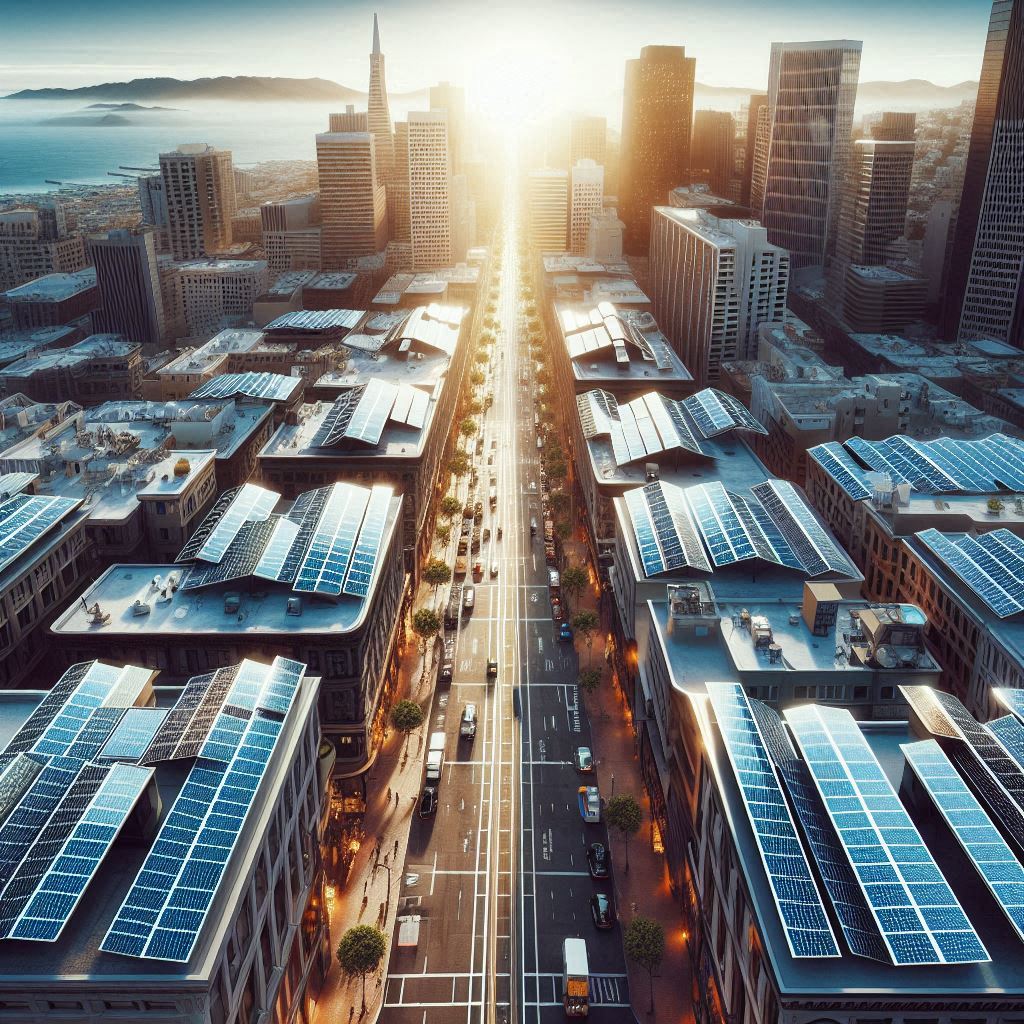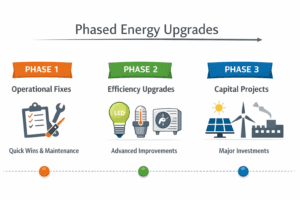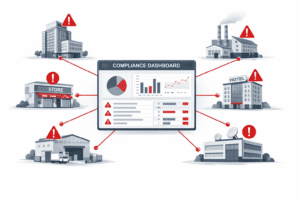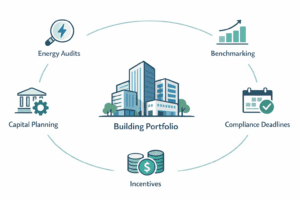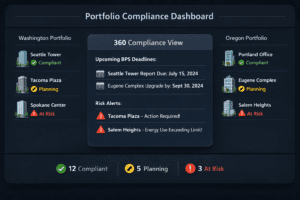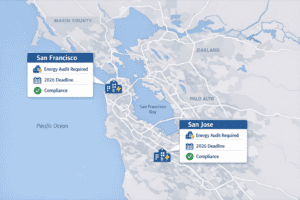Introduction
In today’s eco-conscious world, the significance of energy efficiency and sustainable practices cannot be overstated, particularly in the commercial sector. San Francisco, a city celebrated not only for its technological innovations but also for its environmental leadership, stands at the forefront of integrating green solutions into its urban fabric. Commercial energy audits, a critical tool in identifying and improving energy usage, play a pivotal role in this dynamic. This blog explores the integration of renewable energy into commercial energy audits in San Francisco, demonstrating the city’s commitment to reducing its carbon footprint and promoting sustainability.
Understanding Commercial Energy Audits

A commercial energy audit is an essential diagnostic tool that helps business owners understand where and how energy is used within their operations. The purpose of an energy audit is multifaceted: it aims to identify opportunities to improve energy efficiency, reduce energy costs, and minimize environmental impact. The process typically unfolds in three phases: inspection, analysis, and recommendations.
During the inspection phase, energy auditors use a variety of energy audit tools to collect data on existing energy usage, which often includes reviewing utility bills, examining the physical conditions of the building, and using specialized equipment to identify areas of energy waste. In the analysis phase, this data is carefully evaluated to pinpoint inefficiencies and areas for improvement. The final phase involves drafting a detailed report that provides tailored recommendations for energy conservation measures, which might include both low-cost fixes and investment in renewable technologies.
Businesses in San Francisco particularly benefit from these audits, as they align with both regulatory mandates and corporate sustainability goals. By understanding and managing their energy consumption, businesses can make informed decisions that significantly reduce operational costs and enhance their compliance with local energy policies.
Renewable Energy Overview in San Francisco
San Francisco’s renewable energy landscape is robust and diverse, encompassing solar, wind, hydroelectric, and biomass sources. The city’s aggressive renewable energy goals are supported by comprehensive policies and incentives designed to foster the adoption of green energy in the commercial sector. San Francisco aims to achieve 100% renewable energy citywide by 2030, a testament to its green commitments.
The impact of these initiatives is substantial. For instance, the installation of solar panels in commercial buildings has surged, driven by both the decreasing cost of solar technology and significant government incentives. The San Francisco Solar Map provides a fascinating visualization of the city’s solar installations, showing a wide adoption across commercial and residential properties.
Integration of Renewable Energy in Energy Audits
In San Francisco, the inclusion of renewable energy considerations in commercial energy audits is becoming standard practice. This integration is crucial, as it not only assesses current energy efficiency but also evaluates the potential for incorporating sustainable energy technologies. Auditors examine the feasibility of installing solar panels, wind turbines, and other renewable systems, taking into account the building’s location, structure, and energy needs.
Several success stories highlight the benefits of this approach. A notable example is a large tech company in San Francisco that, following a detailed energy audit, implemented a combination of solar energy systems and energy-efficient HVAC upgrades. This initiative not only reduced their energy expenditure by 30% but also significantly lowered their greenhouse gas emissions.
Benefits of Incorporating Renewable Energy in Energy Audits
The benefits of integrating renewable energy into commercial energy audits are extensive:
- Cost Savings: Renewable installations, such as solar panels, can drastically reduce electricity bills. Over time, the initial investment is offset by the savings on traditional energy sources, which continue to rise in cost.
- Environmental Impact: By adopting renewable energy, businesses can dramatically reduce their carbon footprint, contributing to global efforts against climate change and aligning with consumer expectations for sustainable practices.
- Enhanced Public Image: Companies that proactively engage in sustainable practices are often viewed more favorably by consumers and investors, enhancing brand loyalty and potentially leading to increased market share.
Challenges and Solutions
Despite the clear benefits, integrating renewable energy solutions comes with its challenges. Financial barriers, technical limitations, and regulatory complexities are common hurdles. However, San Francisco provides several avenues to mitigate these challenges, including financial incentives like tax rebates and grants, technical assistance programs, and a supportive regulatory environment that encourages renewable investments.
Businesses can find detailed information on available support through the Office of Economic and Workforce Development in San Francisco, which offers resources specifically tailored to help local businesses thrive sustainably.
Future Trends and Developments

As technology advances, the scope and efficiency of renewable energy in energy audits are expected to grow. Innovations in photovoltaic technology, battery storage solutions, and smart grids will further enhance the feasibility and desirability of renewable installations. Moreover, as public awareness and regulatory frameworks evolve, we can anticipate an even greater integration of sustainable practices in commercial settings.
Local government and community initiatives will continue to play a critical role in shaping these developments, providing the necessary support and framework to encourage businesses to adopt green technologies.
Conclusion
The integration of renewable energy into commercial energy audits represents a significant stride toward sustainability for San Francisco businesses. This practice not only supports the city’s environmental goals but also offers substantial economic and social benefits for the businesses involved. As we move forward, the continued adoption and advancement of renewable energy technologies will be paramount in shaping a sustainable, energy-efficient future for all.
By engaging in renewable energy audits, San Francisco businesses not only contribute to a more sustainable world but also position themselves as leaders in the global shift towards environmental responsibility. Let this be a call to action for all local businesses to consider the long-term benefits of renewable energy audits and to take proactive steps towards a greener, more sustainable future.
VertPro.com offers tools and services to help property owners and managers improve building energy efficiency and meet regulatory standards. Whether you’re looking for instant pricing on energy audits, need support with benchmark compliance, or want to explore available building upgrade options, VertPro® provides user-friendly technology solutions to simplify the process. Their platform helps ensure adherence to over 60 Energy Benchmarking and Efficiency Laws across the country.
For those looking to improve their property’s energy usage and operational value, VertPro.com provides a diverse array of tools and information. The site aims to facilitate a better understanding of energy efficiency practices and legislation, helping building owners and property managers make informed decisions about their energy strategies while complying with all energy ordinances and laws.
If you’re looking to stay ahead of the curve in building management and ensure your properties meet the future benchmarking laws, we’re here to help. Fill out our contact form here, and one of our experts will get in touch to discuss how we can assist you in optimizing your building management strategies for 2025 and beyond.


